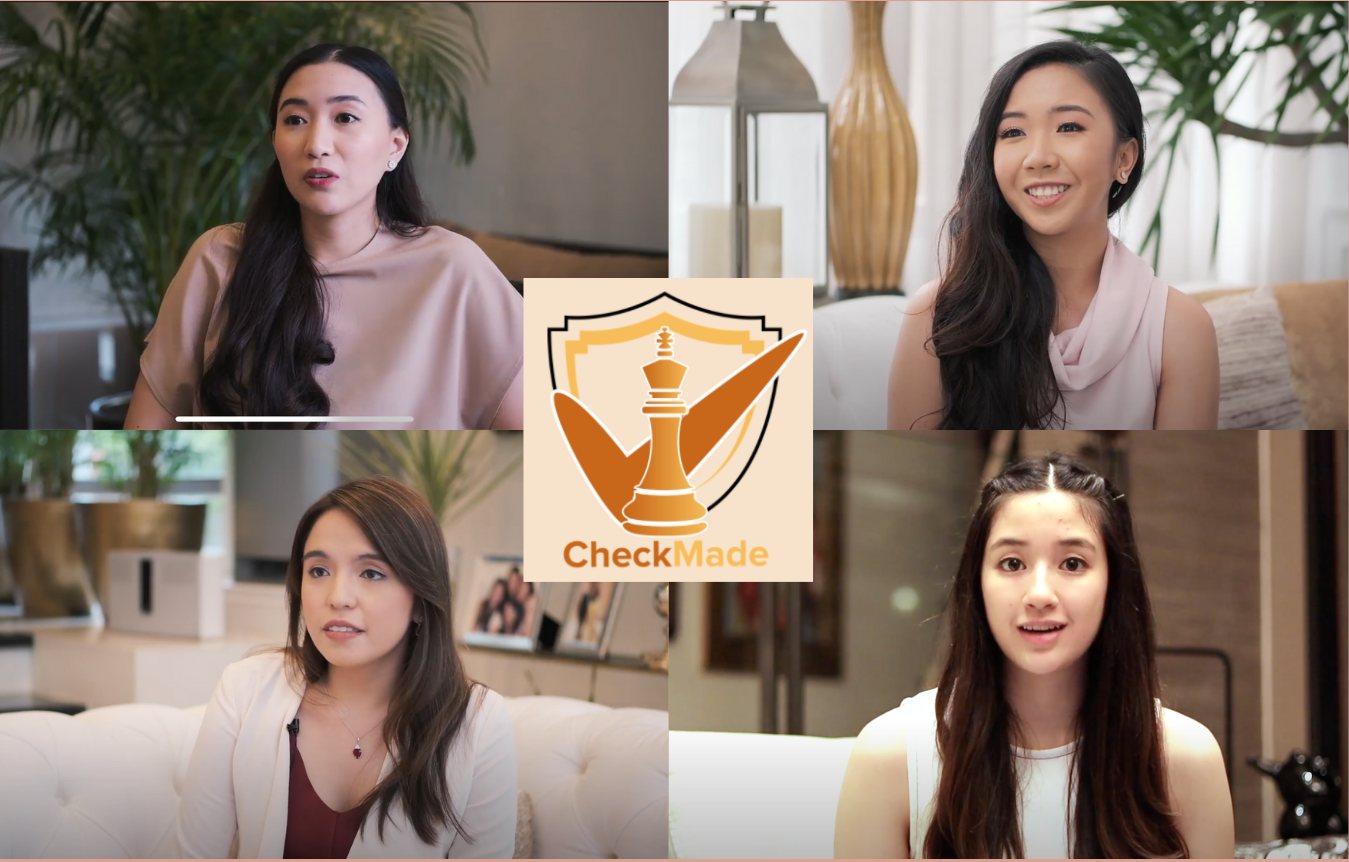Startup seeks to make online shopping fraud-free
With a booming e-commerce industry comes greater risk of online fraud—and few options to protect consumers from such scammers.
A new startup, created by four young Filipino women passionate about improving the online shopping industry, seeks to make e-commerce that much more secure through CheckMade, an “independent third-party verification body” that affirms the legitimacy of online merchants, and evaluates their positive attributes.
Celine Montalla, who came up with the idea, wanted to address the issue of online fraud to provide consumers protection and peace of mind, while boosting the credibility of online sellers who provide good deals.
CheckMade’s verification process initially requires sellers to submit pertinent documents that would prove their validity. If they pass, the sellers are awarded CheckMade “badges,” which they can display on their online stores, be it in a marketplace or their own website. These badges are meant to signify to buyers that they run a legitimate business.
Along with Montalla, who is deputy managing director of a top 1,000 Philippine holding company, CheckMade is run by three other 20-something women who believe in the huge potential of the Philippines’ e-commerce industry: Montalla’s sister Ciara, public relations associate for the Foundation for the Support of the United Nations; Julia Pineda, court attorney at the Supreme Court of the Philippines; and Jana Aguilar, who is currently taking up Bachelor of Arts in Computer Science, with a focus on databases and data mining, at Boston University.Montalla says she came up with CheckMade after she herself figured in a case of online fraud. She says she had bought a huge amount of face masks from an acquaintance, and upon receiving the order, was surprised to find that what was sold to her looked completely different from the items she was expecting.“And we’re not just talking about a few thousand pesos,” Montalla says.
Article continues after this advertisementTo see if they actually had a viable business model, the group conducted a survey in May, which revealed that “online consumers want a service that verifies the legitimacy of sellers, and ensures the safety and security of their online transactions.”
Article continues after this advertisementThe survey’s findings, Ciara adds, also showed that almost 74 percent of Filipino online consumers prefer to interact with brands that had certifications or accreditations of legitimacy. “Both sellers and consumers believe that proof of legitimacy and accreditation from a third-party platform would increase trust, improve a brand’s reputation, and distinguish sellers in an overcrowded marketplace,” Ciara adds.

CheckMade online seller badges are meant to signify to consumers that a business is legitimate and is therefore safe to transact with. The first badge, the pawn (green), is being offered by the startup for free, provided sellers submit pertinent
documents that verify their legitimacy.
To do this, CheckMade created different badges to both verify sellers and to display the level of sophistication of their business. The initial badge, or the pawn (everything is chess-inspired), is given to sellers for free, as long as they can provide CheckMade with basic information: government-issued ID, mobile number and email address. They are also automatically included in CheckMade’s seller directory.
To “level up,” sellers can purchase “accessories” for their badges, as long as they submit other pertinent business documents, such as registration with the Department of Trade and Industry. These accessories serve to “enhance” the badges, Montalla explains, which help sellers who are able to acquire them differentiate themselves from the sea of online merchants.
Each accessory costs $2, or roughly P100. As an online seller’s business becomes more sophisticated, Montalla says he or she will eventually earn ranked badges, such as the rook and, eventually, the king, which indicate higher levels of legitimacy and consistent track record.
Eventually, CheckMade will also offer specialty badges, which serve as recognition of their excellence in other standards, such as customer protection (bishop), product management (knight), and customer satisfaction (queen).
Still in its infancy stage, CheckMade’s potential has already been recognized by the international e-commerce industry, as it was recently chosen as one of the top three finalists of the Alibaba GET (Global E-commerce Talent) Global Challenge. The team went up against 11 other startups from the Philippines for the national round, and will be competing in the upcoming World Finals against startups from other countries (China, South Korea, Thailand, Malaysia, Indonesia, Cambodia, Mexico, Colombia, African Region, Uzbekistan, France and Morocco, Serbia and Russia).
As they scale the business, Montalla says they want to do more than just protect buyers and legitimize online sellers—they also want to create a “CheckMade culture,” wherein both sides “speak the CheckMade” language, and are conscious about making e-commerce a seamless and safe experience for everyone.
“We believe our team can perform a meaningful role in the digital transformation of businesses during this new normal,” she adds. —Annelle Tayao-Juego
